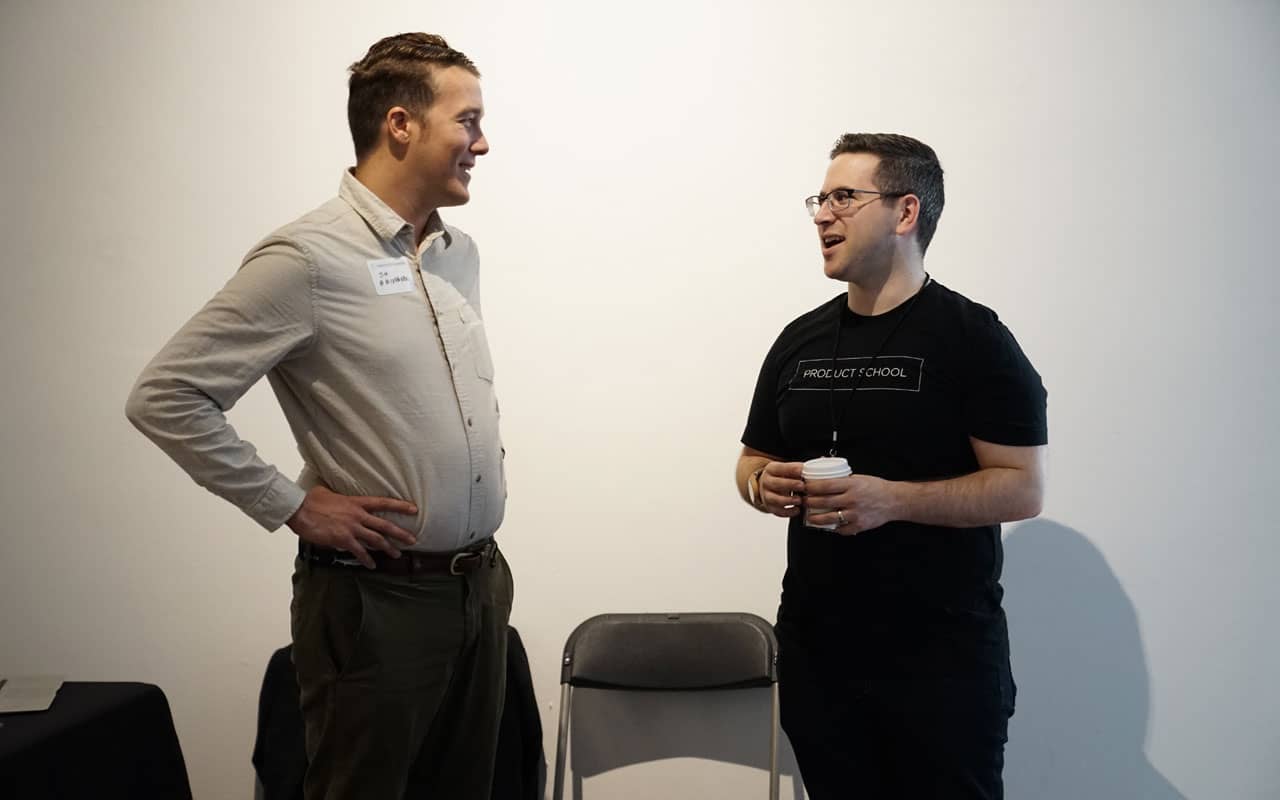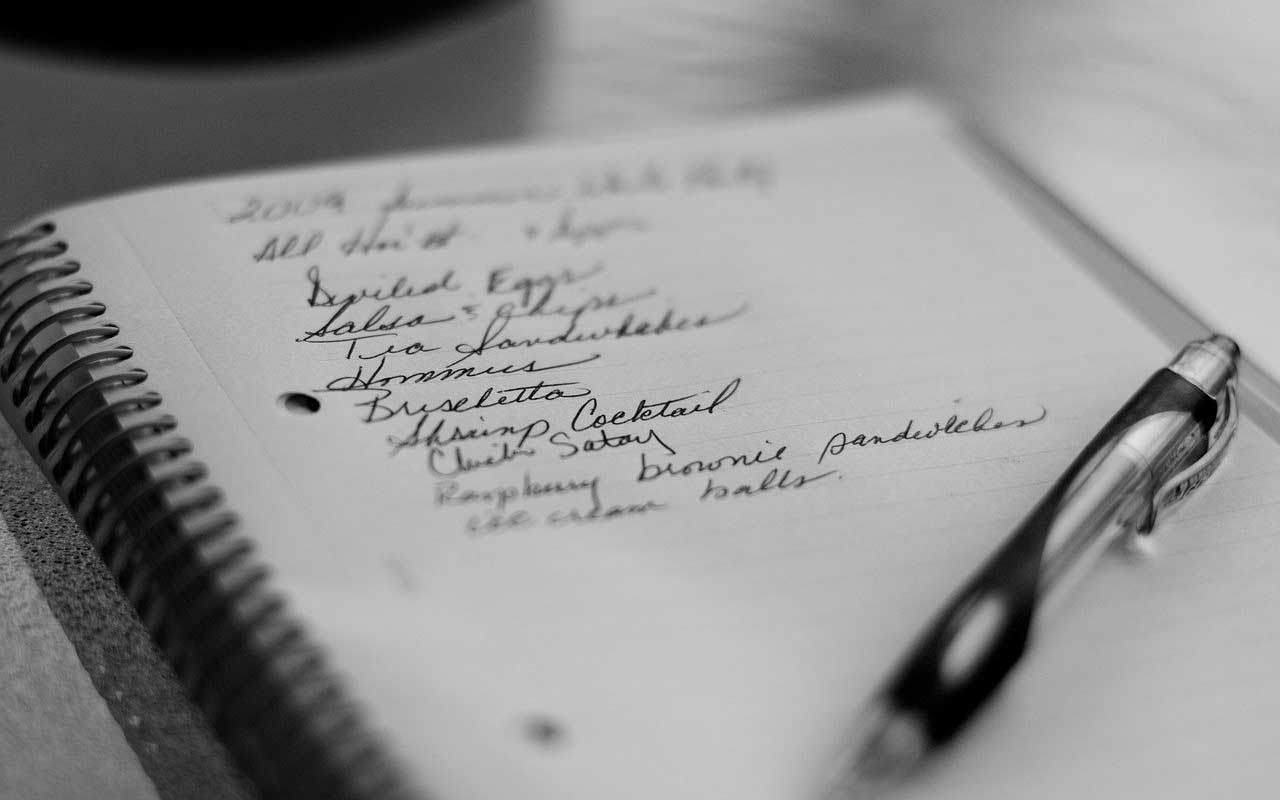Podcast: Download
Subscribe: Apple Podcasts | RSS

Maybe it was to Paris, or just a school outing.
My first travel memory is with my family. We crossed much of Canada, camping and fishing our way from British Columbia to New Brunswick.
And my first school trips were to a farm and a chocolate factory. You better believe I will never forget the chocolate trip!
No matter where you went for your first outing, I bet you can describe it in all its technicolor details.
Or how about this:
Do you know the capital of Iceland? Or what about some other fact you memorized for a pop quiz or trivia night a few months ago?
In all these instances, it is your explicit memory that helps you intentionally recollect facts and personal experiences.
Amazing, isn’t it?
In this post, I’ll explain all about explicit memory, how you form them and how you can build better and stronger memories.
This is what we’ll cover:
What is Explicit Memory?
Are There Different Types of Explicit Memory?
Implicit and Explicit Memory — How Do They Differ?
How Do You Form an Explicit Memory?
How Does Your Brain Retrieve an Explicit Memory?
3 Fun Ways to Boost Your Explicit Memory
What is Explicit Memory?
Explicit memory or declarative memory is part of your long-term memory. You use it throughout the day. When you recall the time of your dentist appointment or recollect your 16th birthday party, you are using your explicit memory.
Explicit memory needs conscious awareness. The cognitive processes of forming explicit memory are also often associative — you link different specific memories to form one consolidated human memory.
There are two types of long-term memory: implicit and explicit memory.
While implicit memory or procedural memory are skills that you pick up unconsciously and unintentionally, explicit memory is everything you actively work on remembering.
Some examples of explicit memory include trying to remember the name of people you meet or trying to cram into your human memory that the capital of Iceland is Reykjavík.
Although implicit and explicit are subtypes of long-term memory, when you think of memory function in “general,” you are referring to the explicit segment.
What’s more? Implicit and explicit types of memory get affected differently with Alzheimer’s disease. While explicit memory is damaged in Alzheimer’s disease, implicit memory remains intact.
Both implicit and explicit memory systems work together in healthy individuals.
Fun fact: there are two other memory processes – short-term memory (also called working memory) and sensory memory (it retains sensory information like those from sounds in the form of echoic memory). A memory must move through these before a lasting long-term memory can be formed.
Are There Different Types of Explicit Memory?
We can categorize explicit memory into episodic memory and semantic memory.
In 1972, Canadian experimental psychologist and cognitive neuroscientist Endel Tulving found a few differences between episodic and semantic memories and proposed the distinction between these two types of explicit memory.
Curious?
Let’s take a quick look:
What is Episodic Memory?
Episodic memory, like the name implies, is a memory of a previous experience, past event, or activity.
Memories of specific events like your first kiss, that fantastic trip to Greenland, or your first prom are all episodic memories. Some episodic memories are also autobiographical, like remembering your date of birth or the street name where you grew up.
You can consciously recollect these past personal experiences.
You’re usually able to associate how you felt during these specific memories. That’s because your emotions are essential when it comes to memory consolidation.
Your brain’s hippocampus is in charge of processing and storing your episodic memories while your cerebellum is involved in retrieval.
If you can recall the excitement of your first day at university or the stress of moving to another home, you can very clearly remember everything that happened on that day based on how that episode made you feel.
That’s the main difference between this type of memory and semantic memory.
What is Semantic Memory?
Semantic memory is usually based on knowledge that you picked up throughout your life and your capacity to recollect this knowledge at will. These aren’t based on personal episodes in your life.
Semantic memory usually refers to general knowledge. Things like how WWI started in 1914 or how the White House looks are examples of semantic memory.
However, it’s not just limited to general knowledge. For example, you know that the sky is blue, what an elephant is, and how to ride a bike.
You probably started learning all of these when you were a kid, as you were starting to experiment and interact with the world around you. You don’t remember how you learned them and yet they’re still consolidated in your mind.
These specific forms of memories aren’t tied to a feeling or to any personal experience.
Implicit and Explicit Memory — How Do They Differ?
As you’ve probably noticed, explicit memory involves conscious recollection.
Whether you remember it based on how you felt that time or based on how hard you studied for that exam, you consciously worked to remember it.
This is not the case with implicit memory.
Implicit memories (often called non-declarative) are those you never consciously tried to remember.
They are a form of memory that you use to interact with the world around you every day. These include your vocabulary, your spatial memory, and your motor skills.
You learned them and then don’t have to relearn again and again to perform them. You usually can’t even remember learning that skill and yet you can do it almost automatically.
An example of implicit memory can be a simple task like how to use a fork, how to boil an egg or even the chorus of ‘Single Ladies’. All of these are unconscious memories that you may not even know you had!
Just reading ‘Single Ladies’ may probably be enough to get that song stuck in your head for the rest of the day. Sorry about that!
How Do You Form an Explicit Memory?
The processes used to form explicit memories are encoding and retrieval.
First, you record or encode information by absorbing it when you read, hear something, or interact with someone. During recording, memories are stored in the hippocampus, which is located in the brain’s temporal lobe.
The hippocampus is the one involved in creating neural connections in different regions. When you’re rehearsing a memory, the memory passes through your hippocampus multiple times.
You have both short-term memory and long-term memory. Anything you remember is first kept in your short-term memory. From there, your hippocampus has the task of deciding if that temporal memory is going to become a long-term memory or simply be forgotten.
If a memory is important, it’s moved to your long-term memory throughout your cerebral cortex. Its exact location will depend on the type of memory.
Physical damage to the cortex (as seen in a magnetic resonance) has been shown to affect your cognitive processes related to memory directly.
Your brain labels most of the memories you make as unimportant and it discards them, so they never make it to long-term memory.
Since explicit memories are part of your long-term memory, these would be facts, figures, experiences, and episodes that your brain consciously moved from short-term to long-term parts of your memory.
For example:
Do you remember the trousers you wore to work two weeks ago?
No, right? That’s because your hippocampus didn’t consider that information relevant enough to retain for longer than a few seconds.
That’s when repetition comes in. The more you retrieve a memory, the easier it’ll be to retrieve it again because you’re telling your hippocampus that it’s important.
Now:
If a young lady happened to notice your trousers and complimented you about them, you would want to tell all your friends about it (as many times as possible, presumably).
At every instance possible, you would repeat the story of how you were just sauntering down the road when this amazingly beautiful girl smiled at you and complimented your trousers.
The more you repeat that story, the more you reinforce that memory and the recording becomes permanent.
You will never forget those trousers. Maybe they even become your lucky trousers!
Once a memory becomes a story, you don’t just remember facts; you remember how those facts made you feel. Your amygdala connects your memories to specific emotions. And you can recall such memories at will.
Is Sleep Important to Form Better Explicit Memories?
There’s a reason why when you’re jet-lagged, or you simply haven’t slept well, you keep forgetting things.
That’s because sleep plays a crucial role in memory formation.
When you sleep, you perform the most crucial part of making new memories: consolidation.
When you’re awake, you acquire the memory or learn a new fact or skill. But it’s only during night time when you sleep that your brain files the memory in a place you can retrieve it later.
And sleeping doesn’t just help you consolidate the memories you’ve gained that day.
When your brain is organizing new memories, it can associate them with older memories as well. This not only helps you remember things better, but also helps you in your creative process by finding links to your memories you didn’t have before.
When you don’t sleep well, your brain simply lacks the time for filing, organizing, and processing new memories, leading to bad recall later. Believe me – I’ve been there!
If you want to remember what you learned here, you better get your 8 hours of beauty sleep tonight.
How Does Your Brain Retrieve an Explicit Memory?
Memories are usually retrieved by association.
When a teacher asks you a question about Independence Day, you’ll probably try to remember the lecture he gave a week before.
Memory isn’t perfect, though.
If you think back to that lecture, you’ll probably remember what the teacher said but not the shoes he was wearing.
That’s because once the explicit memory is consolidated, it is stored by a group of neurons that react in the same pattern created by the original experience. You won’t remember the shoes because they didn’t create an impact on your original experience, so the memory was lost after being a short-term memory.
These patterns are recorded several times over to create redundancy. That way, if there’s damage to the original, you’ll still be able to retrieve the memory.
Can Memories Get Corrupted?
However, this also means memories can become corrupted with time.
Since you can’t notice everything at once – and your mind doesn’t like to have holes – it fills up the gaps between your memories from other similar memories.
If you try to retrieve details from a memory that wasn’t there, your mind may fill that detail with information from a different memory. Then every time you retrieve that memory, you’ll reinforce that false detail into the experience.
That’s why you may be sure you remembered the right thing for a test only to find out you were wrong when getting the result.
Explicit memories don’t have to be retrieved on purpose. Sometimes simple stimuli can act as a trigger. Have you ever smelled some spice or perfume and felt as if you were teleported to another place?
Explicit memories are remembered by an association that your brain makes, in a conscious or unconscious manner.
However you make them, it’s essential to keep up on the state of your memories. One study compared over one thousand Alzheimer’s patients and found that patients who are aware of memory loss are less likely to develop Alzheimer’s disease.
Why Do You Lose Memory?
Do you keep forgetting things? Don’t get an MRI just yet!
Forgetting things you used to remember is a normal part of the learning and memory process, especially as you age, and it rarely signals memory impairment.
Memories are a use-it-or-lose-it kind of thing. If you don’t remember a particular memory for long enough, your brain’s response is typically to forget it to make space for new ones.
And that’s great! In a healthy brain, time heals all wounds.
However, some people don’t get that luxury.
The findings of different studies that compared the memory process of patients with post-traumatic stress disorder show that PTSD directly impaired the creation of explicit memories in their subjects by affecting brain activity in the hippocampus and prefrontal cortex.
This also affected facial emotion recognition since you rely on these areas to remember and recognize those signals.
However, the tormenting effect that other memories typical of PTSD causes are hard to forget.
For experimental psychology, getting better at forgetting is just as big of a challenge as getting better at remembering.
3 Fun Ways to Boost Your Explicit Memory
Since explicit memories are memories you put effort into recording, you can create those at will.
The problem arises when you’re trying to record information that doesn’t seem particularly relevant to your brain.
Imagine you’re at a party and get introduced to five people. By the time you get to the third person, you probably already forgot the name of the first one.
Why? Because your brain wasn’t thinking about it. You were probably more worried about creating a good impression, giving a good handshake, or trying to look friendly.
All that was very important to your brain, so listening to their names was pushed to the side.
How can we solve it?
Here are three fun ways to strengthen your memory performance:
1. Repeat, Repeat, Repeat
Repeating information is an excellent way for temporal memories to become permanent ones. If you make an effort to repeat someone’s name when you get introduced to them, you’re more likely to remember that name for a long time.
Although repetition is usually associated with implicit memories (like riding a bike), it can also help you form explicit memories.
Repeating answers for a test, passwords, and even phone numbers is a simple but proven way to consolidate a memory.
It’s even better when you use elaborative encoding (exercises) because that reduces the amount of repetition while increasing the impact of each.
2. Use Bizarre Association
A great way to remember information is to associate it with things you already know. Try to think about how things make you feel or tie the memory to another strong memory you have. The stronger the connection, the easier it’ll be to remember.
Even the most forgetful person will probably remember another person who shares their moniker.
You can use this technique when you go grocery shopping. What most people do is try to memorize a list of words of what they’re going to buy. Then you associate your grocery list with a number.
A more effective way is to associate it with a more memorable thing, like a recipe.
Why?
Because your brain finds the task of processing and recording visual memories far easier than a list. This is exactly what a study that compared participants involved in a supermarket scenario found: people are more likely to remember the image of their groceries than the simple words.
And, if you’re using a recipe, it doesn’t even have to be a real one!
For example, say you need to buy eggs, milk, tomatoes, toilet paper, and batteries. You can associate all of them by imagining making scrambled eggs with a bit of milk and tomatoes, mixed with batteries and garnished with little bits of toilet paper.
Make it as realistic in your head as you possibly can. Imagine the colors, the smell, the texture, and even the taste.
The more ridiculous your association is, the more memorable it’ll be!
And when you use the Magnetic Memory Method to become a mnemonics dictionary, all the better.
3. Build Memory Palaces
The last two techniques work better combined.
The Memory Palace technique is an ancient way of remembering things. Traced back to the Greeks, it has been used by geniuses like Hannibal Lecter and Sherlock Holmes to remember everything.
Memory Palaces, however, aren’t fiction.
A Memory Palace consists of associating memories to a location you’re familiar with. You visualize that place in your head and you associate memories to parts of that place.
If, for instance, you were to associate the room you’re in with memories, you’d store the information in the corner, the drawers, the ceiling, etc.
That way, whenever you need to remember something, all you need is to go to your mind palace and look it up.
Neat, right?
Make Better Memories
When you build Memory Palaces using the Magnetic Memory Method, you unlock the powers of:
- Autobiographical memory
- Episodic memory
- Semantic memory
- Procedural memory
- Sensory memory
- Iconic memory
- …and so much more.
These improvements allows you to move information into explicit memory faster — and with predictable and reliable permanence.
Otherwise, you’re just waiting around for flashbulb memory, and that’s not a strategy.
You know you deserve better.
The long term effects of using the Magnetic Memory Method to remember and recall information is stronger and results in a healthier brain.
So are you ready to give a booster shot to your explicit memory?
Pick up your copy of my free Memory Improvement Kit, and make your memory Magnetic!
Related Posts
- Memory Improvement Techniques For Kids
You're never too young to get started with memory techniques
- How to Memorize Something Fast: 5 Simple Memory Techniques
Wondering how to memorize something fast? Read now for 7 solid steps you can follow…
- Memory Improvement Techniques For Kids
You're never too young to get started with memory techniques














